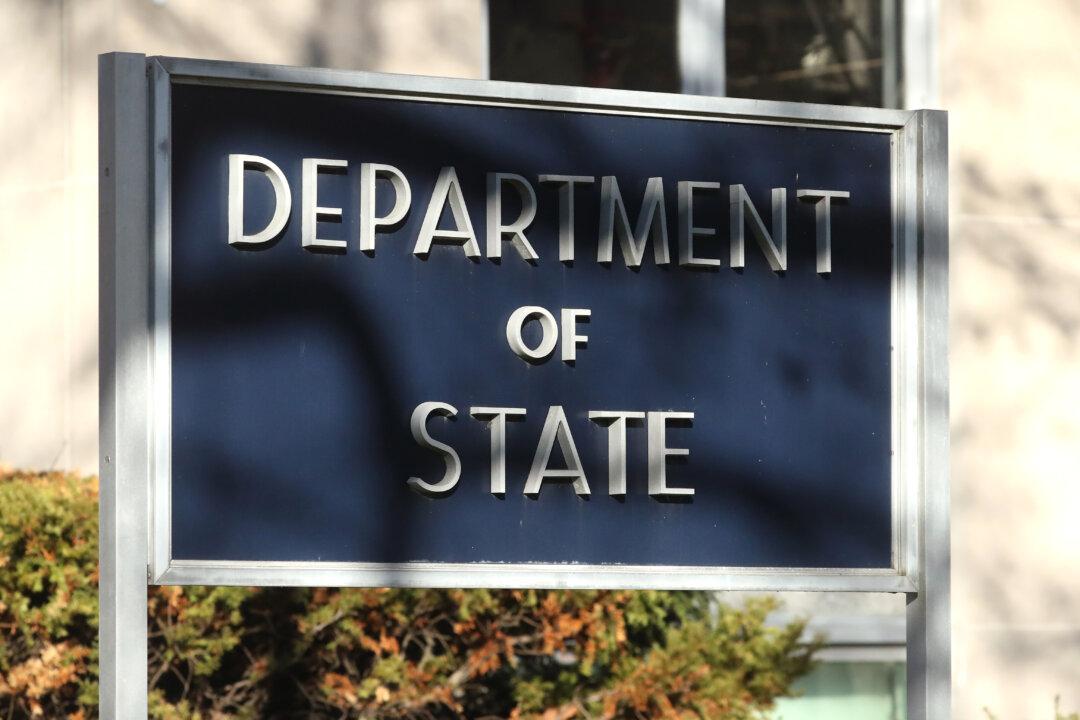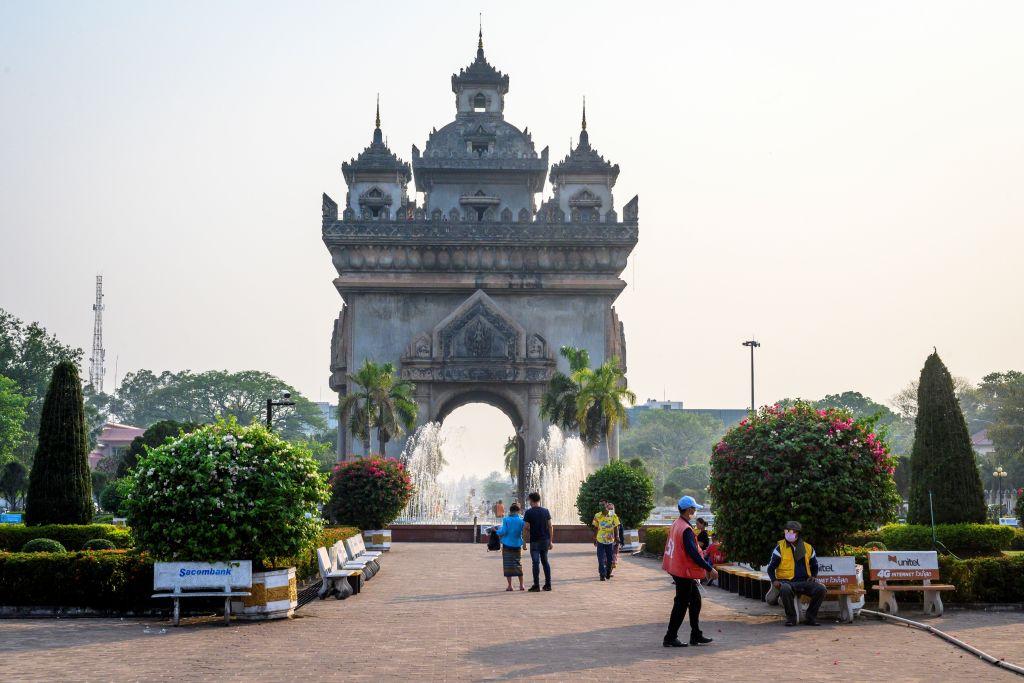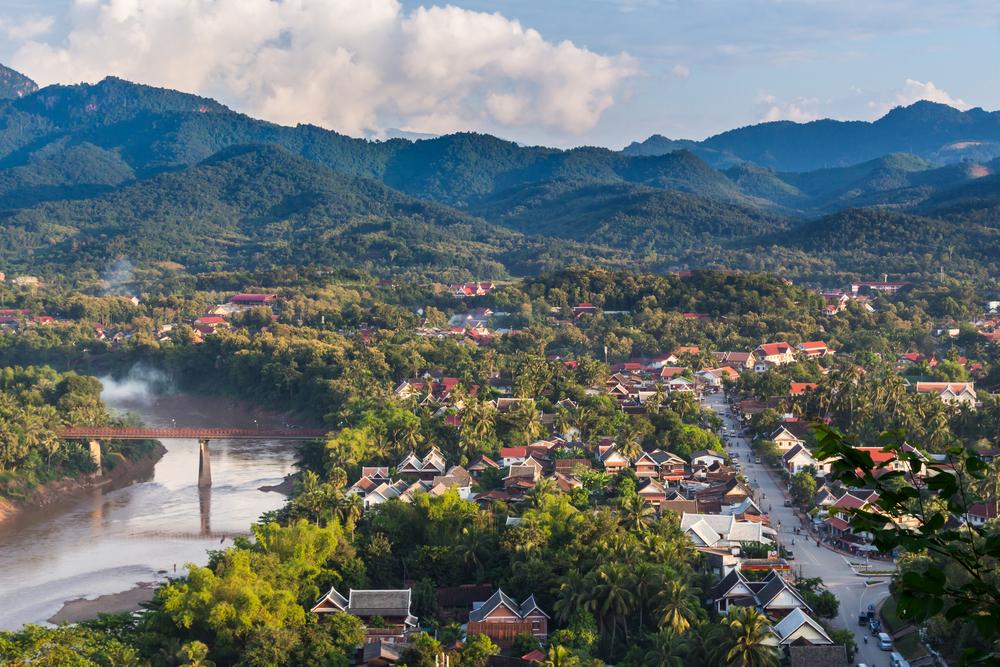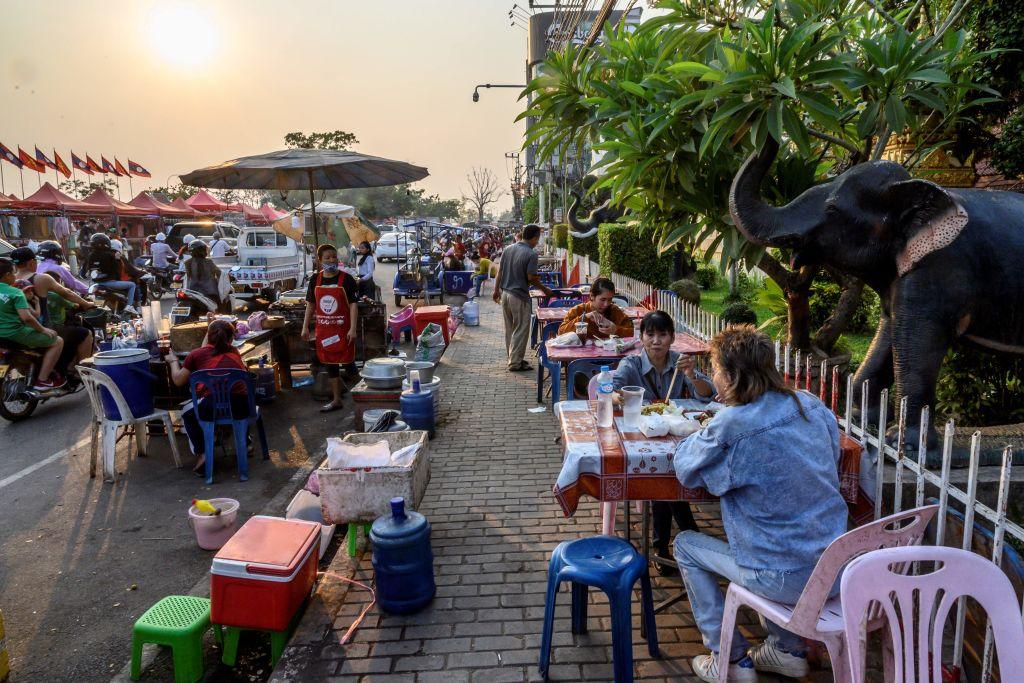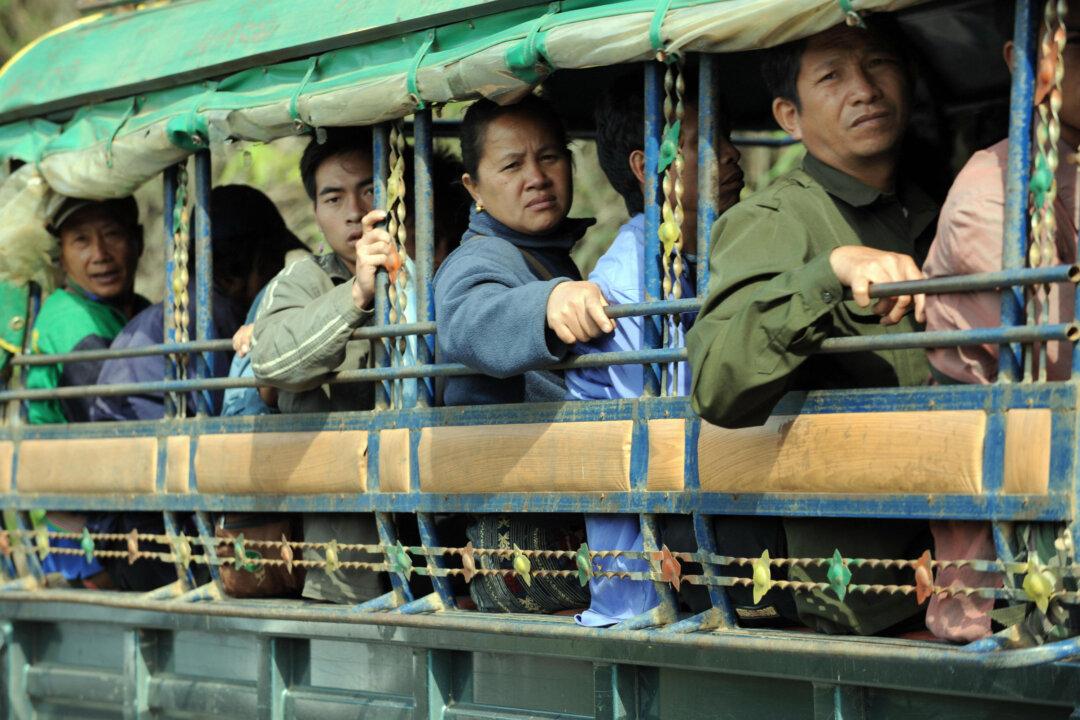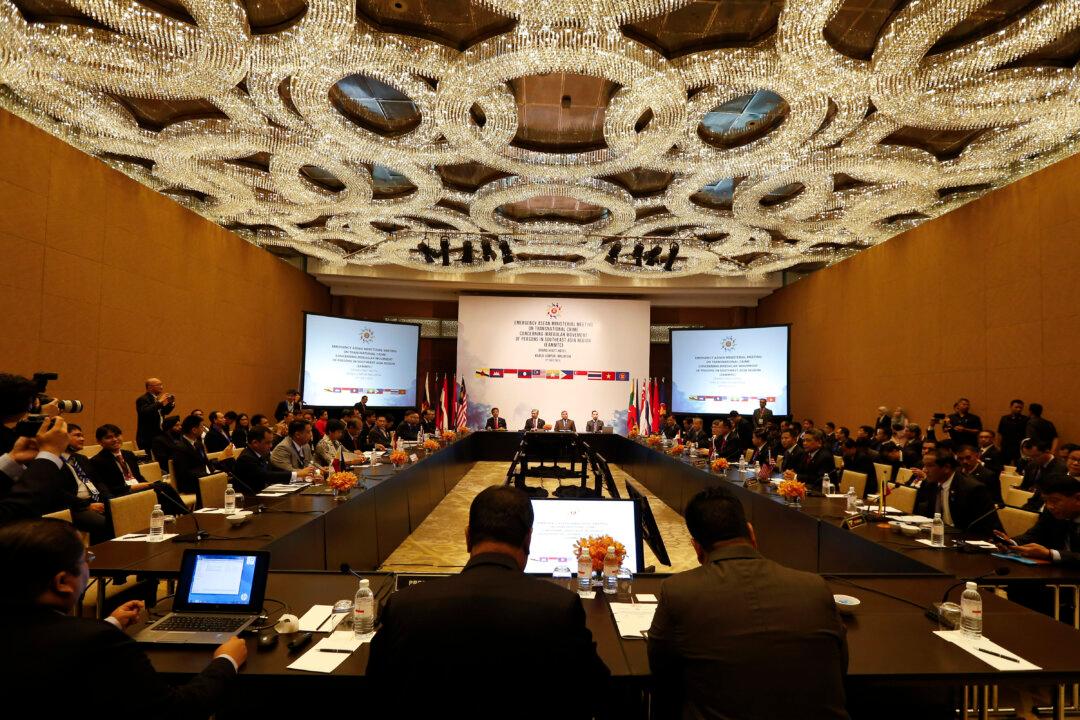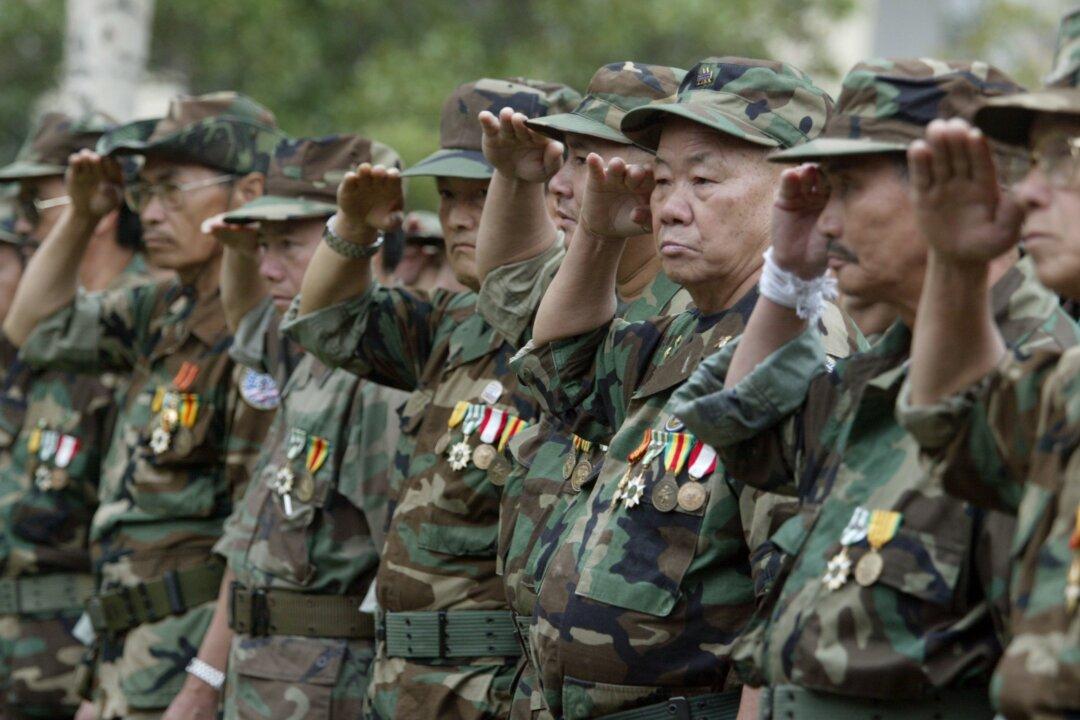Focus
Laos
LATEST
State Department Expresses Concerns Over Rights Lawyer Forcibly Repatriated to China From Laos
Lu Siwei’s detention in Laos and his subsequent repatriation to China is another example of Beijing’s transnational repression.
|
|
Vietnam, Laos, Cambodia in a Nutshell: 8 Best Places to Visit in 2020
And of all the countries in the region, Vietnam, Laos, andCambodia almost always top the list, with something for everyone.
|
Is ASEAN Losing Its Way?
The charter for the Association of Southeast Asia Nations emphasizes economic growth and principles that support cooperation, renunciation of the use of force, mutual respect for members, and rejection of external interference or coercion. ASEAN’s track record for peaceful resolution of disputes through consensus may be at risk as unity erodes, warns author and researcher Amitav Acharya. Members are divided about how to respond to China’s increasingly assertive influence in the region, particularly over claims in the South China Sea. ASEAN’s expansion in membership and functions, along with competing interests and reliance on China, contribute to the disunity. Acharya reminds that ASEAN began at the height of the Vietnam War in 1967 with five members—Indonesia, Malaysia, Philippines, Singapore and Thailand; a decade later the group condemned Vietnam’s invasion of Cambodia as a threat to regional stability. ASEAN now has 10 members, and four have overlapping claims with China in the South China Sea. ASEAN could lose relevance by not taking a diplomatic stand on such issues.
|
Thailand Finds Record Number of Elephant Tusks in Bean Sacks (+ video)
Thailand seized 4 tons of ivory hidden in bean sacks tracked from Congo in what authorities said was the biggest bust in the country’s history
|
The Mysterious Plain of Megalithic Jars
The Plain of Jars in the Xieng Khouang plain of Laos is one of the most enigmatic sights on Earth.
|
Former Laos Resistance Fighter in Exile in Thailand Deported to Laos
BANGKOK— Thailand deported a former ethnic Hmong resistance leader whose group fought for the U.S. in Laos in the 1960s, Thai officials and rights groups said Wednesday, raising concerns that he will face persecution in his homeland.Moua Toua Ter and...
|
High Speed Rail Could Bankrupt Laos, but It’ll Keep China Happy
Despite impressive economic growth rates over the last decade, a third of Laos’s population still lives below the extreme poverty line of US$1.25 per day.
|
State Department Expresses Concerns Over Rights Lawyer Forcibly Repatriated to China From Laos
Lu Siwei’s detention in Laos and his subsequent repatriation to China is another example of Beijing’s transnational repression.
|
|
Vietnam, Laos, Cambodia in a Nutshell: 8 Best Places to Visit in 2020
And of all the countries in the region, Vietnam, Laos, andCambodia almost always top the list, with something for everyone.
|
Is ASEAN Losing Its Way?
The charter for the Association of Southeast Asia Nations emphasizes economic growth and principles that support cooperation, renunciation of the use of force, mutual respect for members, and rejection of external interference or coercion. ASEAN’s track record for peaceful resolution of disputes through consensus may be at risk as unity erodes, warns author and researcher Amitav Acharya. Members are divided about how to respond to China’s increasingly assertive influence in the region, particularly over claims in the South China Sea. ASEAN’s expansion in membership and functions, along with competing interests and reliance on China, contribute to the disunity. Acharya reminds that ASEAN began at the height of the Vietnam War in 1967 with five members—Indonesia, Malaysia, Philippines, Singapore and Thailand; a decade later the group condemned Vietnam’s invasion of Cambodia as a threat to regional stability. ASEAN now has 10 members, and four have overlapping claims with China in the South China Sea. ASEAN could lose relevance by not taking a diplomatic stand on such issues.
|
Thailand Finds Record Number of Elephant Tusks in Bean Sacks (+ video)
Thailand seized 4 tons of ivory hidden in bean sacks tracked from Congo in what authorities said was the biggest bust in the country’s history
|
The Mysterious Plain of Megalithic Jars
The Plain of Jars in the Xieng Khouang plain of Laos is one of the most enigmatic sights on Earth.
|
Former Laos Resistance Fighter in Exile in Thailand Deported to Laos
BANGKOK— Thailand deported a former ethnic Hmong resistance leader whose group fought for the U.S. in Laos in the 1960s, Thai officials and rights groups said Wednesday, raising concerns that he will face persecution in his homeland.Moua Toua Ter and...
|
High Speed Rail Could Bankrupt Laos, but It’ll Keep China Happy
Despite impressive economic growth rates over the last decade, a third of Laos’s population still lives below the extreme poverty line of US$1.25 per day.
|

